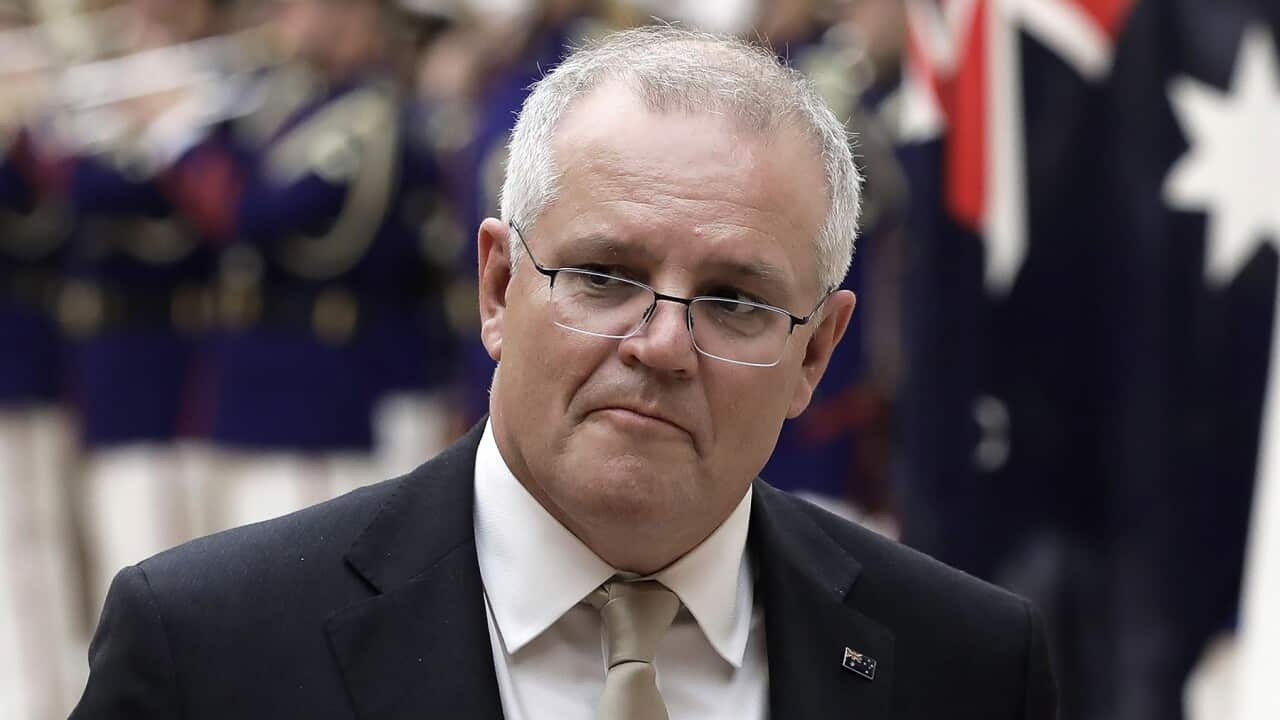Prime Minister Scott Morrison is demanding answers over reports China has blocked Australian coal exports in the latest trade dispute between Canberra and Beijing.
Chinese state-owned tabloid The Global Times reported overnight that China has approved power plants to import coal from several countries "except for Australia."
The prime minister said the state media reports had not yet been confirmed by the government in Beijing.
"Until we are in a position to have that clarified then we can only treat this as media speculation," he told reporters on Tuesday.
"If that were the case, then that would obviously be in breach of WTO rules, it would be obviously in breach of our free trade agreement, and so we would hope that is certainly not the case."
Mr Morrison said if the Chinese government did formally confirm the coal ban, it would have to source dirtier coal from other countries, describing it as a lose-lose.
The move to block coal imports by China would threaten to cost the economy billions and further inflame trade tensions between the two countries.
Trade Minister Simon Birmingham said blocking coal exports would constitute discriminatory action in breach of trade deals.
"The easiest way for China to deal with this is to simply make it clear that it's not true," he told reporters in Sydney.
"I tend not to believe everything I read in Chinese state-owned media but we have seen a pattern of disruption in relation to Australian coal."
Coal imports have faced an unofficial ban from China since October with reports of bulk carriers carrying Australian coal being left stranded offshore.
Mr Birmingham said he was seeking to "get to the bottom" of the trade disruptions.
"A number of vessels have been delayed in terms of offloading Australian cole into China for a considerable period of time," Mr Birmingham said.
"These reports would only heighten that concern."
A formal coal block would be the latest crackdown by China on Australian goods, which has so far hit beef, wine, barley and seafood, plus timber.
The freeze on coal would also threaten to throw Australia's $14 billion coal export industry to China into turmoil and have significant economic implications for Australia.
The Global Times report said China planned to throw open its doors to other coal suppliers including Mongolia, Indonesia and Russia, but not Australia.
The move follows a meeting of China's National Development and Reform Commission.
It comes as Australian exporters heavily reliant on China have been brought to their knees by deteriorating trade ties.
Australian exports of cotton, timber, rock lobster, beef, wine and barley have already been caught up in trade disruptions this year.
Last month, after launching an anti-dumping investigation into Australian wine in August.
The Australian government has denied the allegations of wine dumping, describing them as "perplexing".
Earlier this year, China imposed tariffs on . China has also suspended beef imports from several abattoirs.
Mr Birmingham said the Australian government was close to taking action against China with the World Trade Organisation.
"Finalisation of our approach in relation to barley is imminent .... we are close to making a final decision in ta regard," he said.
Australia disputes the findings China has made in relation to the trade dispute.
Labor's resources spokesperson Ed Husic said the federal government needed a "game plan" to resolve the trade tensions with its major trading partner.
"It's blatantly obvious that there is a breakdown in the relationship. A lot of jobs and a lot of money [is] riding on this and we do need to see definite plans from the government on how to resolve this," he told reporters.
"Because this is more about diplomacy than it is about trade."
Additional reporting AAP




